Benzodiazepine Addiction Treatment Center in Rome, GA
Benzodiazepine Addiction Treatment Center in Rome, GA

Benzodiazepines, or “benzos,” are a type of medication used to treat anxiety and sleep disorders. While helpful for many when used as directed, these drugs can eventually lead to addiction and dependence.
Dependence or addiction to benzos can be incredibly harmful, so seeking treatment is oftentimes necessary. Fairland Recovery Center has a Benzodiazepine addiction treatment center in Rome, GA.
People who take benzos may develop tolerance over time, creating a need for higher doses to achieve the same effect. The higher the dose that is taken (which often happens outside of medical advice), the more likely a person becomes addicted to this type of drug.
Benzo addiction can cause serious health problems and withdrawal symptoms when someone tries to stop using them, and in some cases, it can be life-threatening. This is why seeking medical treatment is so critical.
Getting help for benzo addiction through a recovery center with experience treating this condition is essential. At Fairland Recover
y Center, we begin with medically supervised detox, allowing for safe withdrawal from benzos. This is often followed by counseling and support groups to address underlying issues and prevent relapse.
With proper treatment, it is possible to recover from benzo addiction and learn healthier ways to manage anxiety and sleep problems.
At Fairland Recovery Center’s outpatient treatment program in Rome, Georgia, we aim to provide a treatment plan for effective recovery for every client who walks through our doors.
Understanding Benzodiazepines
Benzodiazepines are a class of prescription drugs that act on the central nervous system, specifically enhancing GABA receptors in the brain. When GABA receptors are activated, a calming or sedative effect is produced. Because of this, benzos are commonly used to treat anxiety disorders and insomnia.
Some well-known benzodiazepines include:
- Valium (diazepam)
- Xanax (alprazolam)
- Ativan (lorazepam)
- Klonopin (clonazepam)
Doctors often prescribe benzodiazepines for short-term use. They can help patients manage acute anxiety or sleep issues for a short amount of time, minimizing more severe effects. This allows the client to develop coping skills for the underlying issue.
However, these drugs are controlled substances due to their potential for misuse and addiction. Long-term use can lead to tolerance and dependence, especially as the brain craves more and more of the medication to achieve the same initial effects.
It’s essential to take these medications only as a doctor prescribes, no matter how much it may feel like more is necessary. Patients should never stop taking benzodiazepines suddenly, as this can cause withdrawal symptoms.
However, if the need for more arises, it is critical to communicate this to our prescribing doctor.
Risk Factors for Benzo Addiction
Certain factors can raise the chances of developing benzodiazepine dependence and a substance abuse disorder related to benzos.
These risks are essential for anyone taking or thinking about benzos, and they should be communicated with a doctor beforehand.
- Age: Older adults may be more likely to misuse these drugs. Their bodies process medications differently, which can lead to stronger effects.
- Mental Health Issues: People with anxiety disorders or depression might rely too much on these drugs to feel better.
- Extended Use: If more of the drug is needed to get the same effect, and if the medication is used longer than is prescribed, tolerance can pave the way for misuse and addiction.
- Mixing Benzos: Using alcohol or opioids with benzos raises the risk of addiction and other harmful side effects.
- Family History: If a close relative has struggled with substance use, a person may be more likely to develop benzo addiction as well.
- Stress and Trauma: People might use these drugs to cope with complex life events or emotions.
- Easy Access: Getting prescriptions from multiple doctors or buying benzos illegally makes misuse more likely.
Identification of Benzo Addiction
Recognizing benzodiazepine addiction can be challenging, mainly because this medication is prescribed. The Diagnostic and Statistical Manual of Mental Disorders provides criteria for diagnosis.
Understanding these signs could be the first step in determining whether you or a loved one needs help from Fairland Recovery Center.
Key signs include:
- Taking larger doses than prescribed
- Using benzos for longer periods than intended
- Unsuccessful attempts to cut down or stop use
- Spending excessive time obtaining, using, or recovering from benzos
- Neglecting important activities due to benzo use
Physical symptoms may include:
- Blurred vision
- Drowsiness
- Poor coordination
- Slurred speech
Psychological symptoms often involve:
- Mood swings
- Anxiety when not using
- Irritability
- Memory problems
Doctor shopping is also typical behavior. When a person cannot get more refills or a higher dosage from their doctor, they may try to find a different doctor to get multiple prescriptions simultaneously.
If another doctor cannot be found, a person in need of more may ask their friends or family members for pills.
Risk-taking behaviors, like driving while under the influence, can also indicate addiction. Increased tolerance and withdrawal symptoms are also key indicators. A person may need higher doses for the same effect.
They may experience anxiety, insomnia, or tremors when not using benzos, thus leading them to take more.
Continued use despite negative consequences is another hallmark of addiction. Many people who experience benzo addiction have significant problems with their relationships, work, or with the law. If the person continues using benzos despite these consequences, then it is time to seek professional help.
Common Benzodiazepines and Their Effects
Because benzodiazepines are a class of drugs used to treat various conditions, the different options may impact the brain and body in other ways. Understanding the effects of each type may make it easier to determine whether you or a loved one needs help.
Alprazolam and Anxiety Management
Alprazolam, also known as Xanax, is widely used to treat anxiety disorders. It is the most well-known and widely used and abused benzo on the market. It acts quickly, usually within 20-40 minutes, and its effects last 5-8 hours. A typical dose ranges from 0.5 to 1.5 milligrams.
Alprazolam helps reduce anxiety symptoms like excessive worrying, restlessness, and panic attacks. Side effects may include drowsiness and dizziness. Some people experience slurred speech.
Alprazolam can be incredibly habit-forming, so it’s typically prescribed for short-term use. If you notice someone using Xanax for a much longer period or frequently, they may need help.
Diazepam as a Muscle Relaxant
Diazepam, sold as Valium, is used to treat muscle spasms, anxiety-related symptoms, and alcohol withdrawal symptoms. It has a longer-lasting effect compared to Xanax. A typical dose is 5-15 milligrams.
It can relieve back pain and other muscle-related discomfort as a muscle relaxant. However, side effects may include drowsiness and coordination problems.
Clonazepam for Seizure Control
Clonazepam, or Klonopin, is an effective treatment for seizures, epilepsy, anxiety disorders, and panic disorders. It has a longer half-life than alprazolam, meaning its effects last longer.
It can help reduce the frequency and severity of seizures in people with epilepsy. Side effects may include dizziness and drowsiness. Some people also experience blurred vision or changes in appetite.
Lorazepam in Treating Anxiety Disorders
Lorazepam, also known as Ativan, is commonly prescribed for generalized anxiety disorders, panic attacks, and insomnia related to anxiety. It has a medium duration of action compared to other Benzodiazepines.
Ativan can provide quick relief from acute anxiety symptoms, but this is why it can cause tolerance. Side effects may include sedation and dizziness. Some people report memory problems or confusion. Doctors usually prescribe it for short-term use or as needed for anxiety symptoms.
Symptoms of Benzo Withdrawal
Benzo withdrawal can cause many unpleasant symptoms. These symptoms often start within a few days of stopping the medication. If you or a loved one experiences withdrawal due to benzos, it is critical to seek medical treatment.
Common symptoms of withdrawal include anxiety and panic attacks. Many people feel more anxious than before they started taking benzos. This is because the brain is inducing feelings of discomfort to encourage more use of the benzos that it is now addicted to.
Insomnia is another major issue. People may have trouble falling asleep or wake up often during the night when they stop taking the medication.
Mood changes are also common. A person might feel irritable, depressed, or have mood swings when withdrawing from benzos. Some physical symptoms of withdrawal that might be more noticeable are sweating, nausea, headaches, muscle pain, stiffness, and tremors.
Some people may experience dizziness and confusion. They may feel off-balance or have trouble thinking clearly. In severe cases, withdrawal can cause seizures. This is why medical supervision is important when stopping benzos.
Benzodiazepine withdrawal syndrome does occur in some people, leading to more intense symptoms that last longer than usual. The severity of symptoms can vary, often depending on how long a person has taken benzos and at what dose.
The critical thing to understand is that benzo withdrawal can end up being life-threatening, so reaching out to a rehab facility like Fairland Recovery Center is often vital during this time.
The Impact of Long-Term Benzo Use
Benzodiazepines can have serious consequences when used for extended periods of time, such as tolerance or addiction. Users may develop benzodiazepine dependence, making it difficult to stop taking the medication. This can result in withdrawal symptoms when attempting to quit.
Cognitive decline is a significant concern with prolonged benzo use. Memory problems, decreased attention span, and impaired learning abilities are common.
Older adults are particularly vulnerable to the effects of long-term benzo use. They may experience an increased risk of falls, confusion, and worsening cognitive function.
Physical health can also be affected. Long-term benzo use may cause:
- Drowsiness and fatigue
- Dizziness and balance problems
- Blurred vision
- Gastrointestinal issues
Mental health impacts include increased anxiety, depression, and mood swings. Paradoxically, long-term use can worsen the very symptoms benzos are meant to treat.
Confronting Benzo Overdose
Benzo overdose is a serious medical emergency, and deaths involving benzos have risen in recent years.
Signs of overdose include extreme drowsiness, confusion, and slurred speech. The most dangerous symptom is respiratory depression, where breathing becomes very slow or stops.
Quick action is crucial if an overdose is suspected. Call emergency services right away if you suspect a benzo overdose. While waiting for help, keep the person awake and lying on their side to prevent choking.
Medical staff will assess the person’s condition. They may use Naloxone, a drug that can help reverse overdose effects in some cases. However, Naloxone is more effective for opioid overdoses than for benzos.
Treatment often involves supportive care. This can include helping the person breathe and monitoring their vital signs. In severe cases, a person might need a ventilator to prevent respiratory failure.
Benzo overdose risk increases when mixed with other drugs. Alcohol and opioids are especially dangerous when combined with benzos.
With the rate of benzo overdoses increasing, prevention is key to ensuring that more lives are not taken. You should only take Benzos as prescribed by a doctor, and if you feel a sense of need for more, communicate this with your doctor immediately. Never mix them with other drugs or alcohol.
If you feel that you’re already struggling with benzo use, talk to a healthcare provider about safe ways to stop it. At Fairland Recovery Center, our treatment teams are experts in helping men and women overcome benzo addiction.
Our programs are individualized to the specific client, ensuring their needs are met through interventions and therapies that work.
Treatment and Recovery Pathways
Getting help for benzo addiction may involve several steps. These include safe detox, mental health care, support from others, and potentially medication. Each part plays a key role in recovery, and at Fairland Recovery Center, we offer them all.
Detoxification and Withdrawal Management
Benzodiazepine detox requires medical supervision. Stopping benzos suddenly can be dangerous. Doctors often use a slow taper to reduce the dosage over time. This helps manage withdrawal symptoms, making the transition to sobriety much easier.
Our medical staff watches clients closely during detox. Clients may receive fluids and other medications to ease discomfort. Depending on the patient’s use history, this process can last weeks or months.
Therapeutic Interventions for Mental Health
Mental health care is crucial in benzo recovery because benzo use is typically associated with an underlying or co-occurring mental health condition.
Many people use benzos to cope with anxiety or trauma. Therapy helps address these root issues.
Common approaches at Fairland Recovery Center include the following:
- Cognitive Behavioral Therapy (CBT)
- Rational Emotive Behavioral Therapy
- Dialectical Behavioral Therapy
- Trauma-Focused CBT (TF-CBT)
- Modeling & Skills Training
- Motivational Interviewing
- Solution Focused Person-Centered Approach
- 12-Step Integrated Approach
- Contingency Management (CM)
- Reinforcement and Goal Setting
- Abstract Expression & Arts Therapy
Combining these methods in our treatment programs allows clients to learn new coping skills. Our goal is to help clients manage their stressors without the use of drugs.
Support Groups and Peer Support
Peer support is also vital for the long-term recovery of any substance use problem. Support groups offer a space to share experiences and learn from others.
Popular options include:
- Narcotics Anonymous (NA)
- SMART Recovery
- Benzo-specific support groups
These meetings provide ongoing encouragement, help people build a sober network, and comfort many by letting them know they’re not alone.
Fairland Recovery Center’s Benzo Treatment Program
Our program offers both structured support and informal opportunities for personal development. Through community living, you’ll be part of a peer-based environment that fosters teamwork, conflict resolution, and the development of valuable interpersonal skills. This foundation supports your growth and recovery in a supportive, collaborative setting.
Partial Hospitalization Program (PHP)
Our partial hospitalization program (PHP) is a level of treatment that offers structured care during the day, allowing clients to return home at night. It provides intensive treatment, including medication management and counseling, tailored to drug addiction. PHP closely watches symptoms, establishes routines, and builds a supportive community.
Intensive Outpatient Program (IOP)
Our intensive outpatient programs (IOPs) are a flexible treatment option without an inpatient stay. You get to maintain your daily routines while still addressing benzo addiction. IOP aims to stabilize mood swings, manage symptoms, and improve functioning. Our clients engage in family therapy, group therapy, and other evidence-based treatment options.
Sober Living Homes
Fairland Recovery Center’s sober living homes offer structured housing that provides additional accountability through drug tests, curfews, and peer support groups. This residential treatment option is often used in conjunction with PHP and IOP. Sober living makes for an easier transition back to daily life and obligations as part of a comprehensive addiction treatment program.
Preventing Benzo Abuse and Relapse
Preventing benzodiazepine misuse starts with careful prescribing practices. Doctors should limit prescriptions to 1-2 weeks when possible. This helps reduce the risk of dependence. For those at risk of abuse, non-drug treatments are often best. These may include therapy or behavioral approaches for anxiety and insomnia.
People with a history of substance use disorder need extra caution with benzos. Their doctors should explore alternative medications when appropriate.
Harm reduction strategies can help those already using benzos:
- Never mix benzos with alcohol or opioids
- Use the lowest effective dose
- Take medications exactly as prescribed
- Avoid suddenly stopping the use
Relapse prevention is key for those in recovery. This may involve:
- Ongoing therapy or support groups
- Stress management techniques
- Regular check-ins with a healthcare provider
- Having a relapse plan in place
Education about the risks of benzodiazepine abuse is crucial. Users should know about potential side effects and signs of dependence.
For some, a medically supervised taper may be needed to stop benzo use safely. This can help manage withdrawal symptoms and reduce relapse risk.
Take the First Step Towards Recovery Today
Don’t let Benzodiazepine addiction control your life. Contact Fairland Recovery Center in Rome, GA, to learn about our compassionate treatment options and start your journey to a healthier, happier you.
Fairland Recovery Center Treatments
Find Help Now
We accept most major insurances











